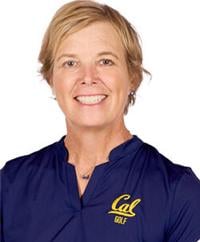“I’m feeling virtuous,” said Nico Muhly with a smile in an interview with The Daily Californian.The composer had been catching up with old friends and writing in London all afternoon, so feeling good about the productive day was well granted.Also “virtuous” is Muhly’s latest television project: the score to Apple TV’s 2022 adaptation of Min Jin Lee’s 2017 novel “Pachinko.” A feat of wonder, the novel is both epic saga and intimate tale — and the new television adaptation is no different. “Pachinko” chronicles the life of a Korean immigrant family across four generations and multiple countries. Starting in Korea during the Japanese occupation, the tale then dances its way to 1980s America. The story largely focuses on Sunja — played successively by Yu-na, Kim Min-ha and Youn Yuh-jung — throughout her life in occupied Korea and her journey to Japan, before eventually turning to the life of her grandson, Solomon (Jin Ha). Though “Pachinko” spins a saga of women grappling with war and loss, it also explores themes of love and hope.With a Korean-dominated cast and mostly Korean dialogue, the series is ultimately a Korean drama show. On the other hand, Muhly is an American composer with roots in Vermont and New York City. Having previously composed orchestral music for Western ensembles such as the Metropolitan Opera, the Los Angeles Philharmonic and the Tallis Scholars, Muhly was an unorthodox choice as a composer for the project. According to Muhly, that was precisely why he was perfect for the job. “I think the reason they hired me was to not have it feel like a genre piece,” Muhly said. “I’d hoped that the music functions in counterpoint to the tropes of the genre.” Though writing Korean dramas isn’t exactly Muhly’s niche, his sweeping scores are a testament to his versatility. Muhly composed the music for all eight episodes, the score ranging from large, zealous pieces to intimate, emotional compositions.Along with familiarizing himself with the history of that time, much of Muhly’s immersion came from the original novel. While researching 1900s Korea, Muhly used the characters as his primary outlet to journey back in time.“The hardest thing was actually anticipating the needs of this very specific story,” Muhly said. It’s safe to say the deep dive into these characters reaped musical rewards.Muhly’s virtuosity takes the reins in the brilliant crafting of the “Pachinko” score. Though the narrative takes liberties in its nonlinearity, shifting between various timelines and characters to tell the overarching narrative of four generations, the music makes no hint at any sort of disjointedness.“A really early artistic decision was to not have the music even acknowledge time,” Muhly said. “Because the decision to put it (the narrative) on shuffle mode was so bold, what it actually needed was a sense of continuity.”With this in mind, Muhly decided against relying on historically accurate musical instruments from the story’s varying eras to produce the score. Instead of emphasizing the distinct time periods, the music needed to blur them together, putting together one monumental story. “The fun of the score is that it should vanish and you should be with the people,” Muhly said. “If I'm doing something where you're noticing just the music and you're not looking at the actors, then I've done something wrong.”With every frame of the eight-episode saga scored to sweet harmony, picking a favorite might seem difficult. However, when asked about his most memorable scene to write, Muhly had his answer on the tip of his tongue.“My favorite scene was one of the hardest scenes (to write), which was the scene at the end of act one, episode one when Hansu sees Sunja at the fish market,” Muhly recounted. This scene depicts one of Hansu and Sunja’s first interactions before their relationship becomes complicated by questions of good and evil. It is the intensity of the mystery that makes this scene so distinct, demanding that Muhly walk the line between hero and villain in order to convey the initial grayness of Hansu’s character. “This was actually a really fun thing to score because I never get to score anything that involves even loose action!” Muhly said, referencing his previous orchestral compositions. “This was hardly a motorcycle chase — it was just a bunch of people running around Japan — but it was amazing.”The “Pachinko” score waxes and wanes to the series’ rhythm — Muhly’s talent the crescendo that carries the story through. Variety announced in April that the show was renewed for a well-deserved second season on Apple TV. Along with fans of the show, Muhly can’t wait for more of the story to unfold. “It’s really exciting,” Muhly said. “I love when there's more of a good thing.”
Nico Muhly talks scintillating score of pivotal ‘Pachinko’
- By Vicky Chong
- Comments
Tags
comments powered by Disqus











